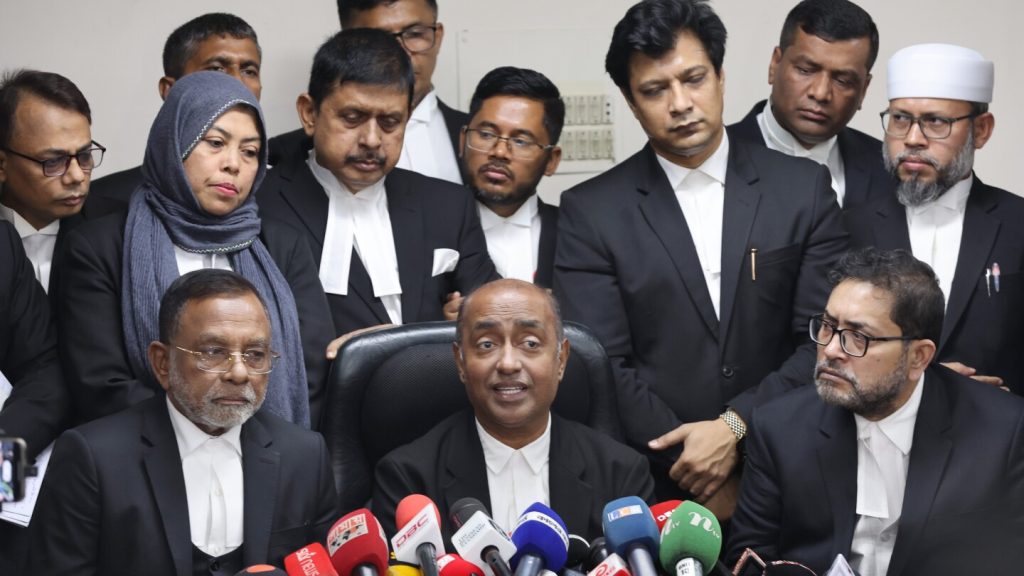Listen to the article
Bangladesh’s Supreme Court Reinstates Caretaker Government System for Future Elections
Bangladesh’s Supreme Court unanimously ruled Thursday to restore the nonpartisan caretaker government system for future national elections, marking a significant shift in the country’s electoral process. The court specified that while the system will be reinstated, it won’t apply to the upcoming elections scheduled for early next year.
The caretaker system, first introduced in 1996, had been widely accepted by Bangladeshis and international observers as a mechanism to ensure electoral fairness in the South Asian nation of 170 million people. Under this system, nonpartisan interim governments led by retired chief justices oversaw elections in 1996 and 2001, while a former central bank governor led the process in 2008.
“The caretaker government system has been declared supportive of Bangladesh’s democracy, and this may be elaborated in the full judgment of the court,” Attorney General Mohammed Asaduzzaman told reporters following the announcement. “We believe Bangladesh has now begun its journey on a truly democratic highway.”
The system was abolished in 2011 under then-Prime Minister Sheikh Hasina’s administration following the Supreme Court’s recommendation. Critics alleged that Hasina scrapped the system to manipulate future elections, a charge her government denied. Subsequently, Hasina’s administration oversaw national elections in 2014, 2018, and 2024, all of which faced international scrutiny regarding their credibility.
The Bangladesh Nationalist Party (BNP), led by former Prime Minister Khaleda Zia, Hasina’s primary political rival, boycotted the elections in 2014 and 2024, consistently demanding the restoration of the caretaker government system. Hasina repeatedly rejected these demands during her tenure.
“The verdict of restoring the caretaker government system will mark the beginning of a new horizon,” said Amir Khasru Mahmud Chowdhury, a key BNP figure, welcoming Thursday’s decision.
The court ruled that the caretaker system will be implemented for Bangladesh’s 14th national election since the country’s independence from Pakistan in 1971. However, the upcoming 13th election will proceed under the current interim government led by Nobel Peace Prize laureate Muhammad Yunus.
Yunus assumed leadership of Bangladesh’s interim government just three days after Hasina was ousted on August 5 in a mass uprising that ended her 15-year rule. Hasina currently remains in exile in India and faces serious legal troubles in Bangladesh. On Monday, she was sentenced to death in absentia after being convicted of crimes against humanity, further complicating the country’s political landscape.
The reinstatement of the caretaker system comes at a crucial juncture for Bangladesh, which has experienced significant political turmoil in recent months. Political analysts suggest that the country faces substantial challenges ahead of the elections as it attempts to stabilize under Yunus’s interim leadership.
The caretaker system was originally designed to prevent incumbent governments from influencing election outcomes, providing a neutral administrative framework during the electoral period. When functioning as intended, the system transferred power to election winners within 90 days, establishing a pattern of peaceful democratic transitions that had been disrupted in recent years.
As Bangladesh prepares for elections early next year, the country faces the complex task of rebuilding democratic institutions while addressing economic challenges and political divisions that have deepened during the political upheaval of 2024. The Supreme Court’s decision represents one step in the country’s efforts to restore faith in its electoral process, though significant challenges remain in the path toward democratic stability.
Fact Checker
Verify the accuracy of this article using The Disinformation Commission analysis and real-time sources.




22 Comments
Silver leverage is strong here; beta cuts both ways though.
Good point. Watching costs and grades closely.
Interesting update on Bangladesh Supreme Court restores nonpartisan caretaker system but not for next elections. Curious how the grades will trend next quarter.
Uranium names keep pushing higher—supply still tight into 2026.
Good point. Watching costs and grades closely.
Good point. Watching costs and grades closely.
I like the balance sheet here—less leverage than peers.
Good point. Watching costs and grades closely.
Good point. Watching costs and grades closely.
Production mix shifting toward World might help margins if metals stay firm.
Good point. Watching costs and grades closely.
Nice to see insider buying—usually a good signal in this space.
Good point. Watching costs and grades closely.
Nice to see insider buying—usually a good signal in this space.
Good point. Watching costs and grades closely.
Good point. Watching costs and grades closely.
Nice to see insider buying—usually a good signal in this space.
Good point. Watching costs and grades closely.
Good point. Watching costs and grades closely.
If AISC keeps dropping, this becomes investable for me.
Good point. Watching costs and grades closely.
Good point. Watching costs and grades closely.